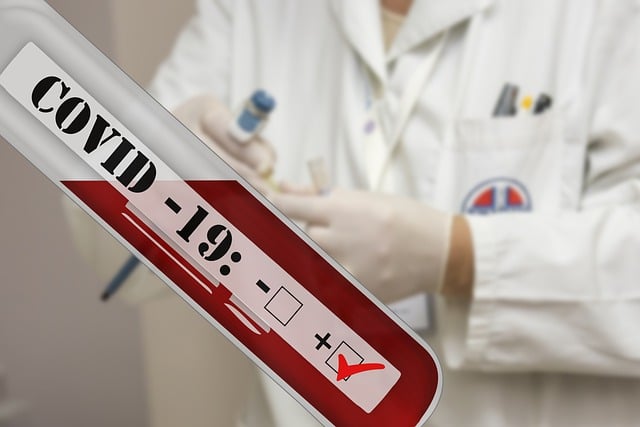The UK Cholesterol Blood Test is a vital tool for managing heart health, measuring 'bad' (LDL) and 'good' (HDL) cholesterol levels. Regular testing after age 40 or with familial risk factors is crucial, as high cholesterol often lacks symptoms but significantly raises the risk of heart disease and stroke—top causes of death in the UK. Pre-test fasting and post-test consultation guide lifestyle changes or medical interventions based on ideal totals: below 5mmol/L overall, LDL under 3mmol/L, and HDL above 1mmol/L.
Discover how simple blood tests can help you manage your cholesterol levels in the UK. This comprehensive guide breaks down the importance of understanding cholesterol, its impact on health, and how UK cholesterol blood tests work as a monitoring tool. Learn about the preparation process and what to expect when interpreting results. Take control of your heart health today with these insightful tips.
- Understanding Cholesterol: What It Is and Why It Matters in the UK
- How Blood Tests Help Monitor and Manage Cholesterol Levels
- Preparing for and Interpreting Your UK Cholesterol Blood Test Results
Understanding Cholesterol: What It Is and Why It Matters in the UK
Cholesterol is a waxy, fat-like substance found in all cells in our bodies. It plays a crucial role in various bodily functions, including helping to form cell membranes and providing raw materials for hormone production. However, having too much cholesterol in your blood can increase the risk of heart disease and stroke, which are leading causes of death in the UK. This is where regular UK cholesterol blood tests become essential.
In the UK, healthcare professionals often recommend routine cholesterol checks, especially for individuals over 40 or those with a family history of high cholesterol or cardiovascular issues. A simple blood test can measure the levels of low-density lipoprotein (LDL) cholesterol, known as ‘bad’ cholesterol, and high-density lipoprotein (HDL) cholesterol, referred to as ‘good’ cholesterol. Understanding these results is vital for making informed decisions about your health and taking preventive measures to maintain healthy cholesterol levels.
How Blood Tests Help Monitor and Manage Cholesterol Levels
Cholesterol blood tests are a crucial tool in monitoring and managing cholesterol levels, particularly in the UK where heart health is a significant concern. These simple procedures provide vital insights into an individual’s cardiovascular risk by measuring the types and amounts of cholesterol present in the blood. High cholesterol often goes unnoticed as it produces no symptoms, making regular testing essential for early detection.
By analysing a small sample of blood, healthcare professionals can determine levels of low-density lipoprotein (LDL) cholesterol, often referred to as ‘bad’ cholesterol, and high-density lipoprotein (HDL) or ‘good’ cholesterol. This information helps in identifying individuals who may be at risk of developing cardiovascular diseases. The UK Cholesterol Blood Test plays a pivotal role in enabling proactive management through lifestyle changes or medical interventions, thereby promoting better heart health outcomes.
Preparing for and Interpreting Your UK Cholesterol Blood Test Results
Before your UK Cholesterol Blood Test, it’s important to fast for at least 10–12 hours. This means avoiding food and drink (except water) during this time. On the day of your test, wear a loose-fitting shirt with sleeves that are easy to roll up. Make sure you take any prescribed medications with you, as well as identification.
After the test, a healthcare professional will discuss your results with you. They’ll interpret your cholesterol levels in relation to established guidelines and risk factors. Total cholesterol should ideally be below 5mmol/L (millimoles per litre). LDL (low-density lipoprotein) or ‘bad’ cholesterol levels should be under 3mmol/L, while HDL (high-density lipoprotein) or ‘good’ cholesterol levels should be above 1mmol/L. These readings will help determine your overall cardiovascular health risk and guide any necessary lifestyle changes or medical interventions.
A simple UK cholesterol blood test can be a powerful tool in managing your health. By understanding cholesterol levels and how they impact heart health, individuals can take proactive steps to improve their cardiovascular well-being. Regular monitoring through these tests enables early detection of abnormal cholesterol readings, allowing for timely lifestyle adjustments or medical interventions. Remember, a healthy diet, regular exercise, and occasional UK cholesterol blood tests are key components in maintaining optimal cholesterol levels and overall heart health.
